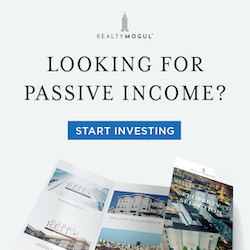[ad_1]
Today’s Classic is republished from Physician on Fire. You can see the original here.
Enjoy!
It’s no secret that many physicians are looking to do something different with their careers and their lives. Burnout, resilience, and wellness are a growing focus as we realize that the status quo is untenable for many of today’s practicing physicians.
Larger employers and institutions are appointing Chief Wellness Officers. The Physicians on FIRE group has over 30,000 verified physicians seeking financial independence. There are over 15,000 doctors in the Passive Income Docs group looking to replace their physician income with passive income.
Ideally, we’d like to see every doctor remain happily and gainfully engaged as a medical professional, but this isn’t a perfect world. Some will be better off finding something else to do with their lives.
Dr. Cory S. Fawcett, a recently “repurposed” general surgeon has recognized the fact that there are other physicians looking for a new purpose, too. Last year, he published a guide for them. It’s the book I was reading when I wrote about Regret After Leaving a Medical Career Behind.
I’ve previously reviewed the first two books in Dr. Fawcett’s Doctors Guide Series, the guides to Eliminating Debt and to Starting Your Practice Right. This is the third book in the series that I’ve been told is just getting started.In the introductory paragraph, we learn that more than a third of current full-time physicians have a plan in the next three years to retire, go part-time, or switch to a non-clinical career. If you fall into one of these three categories, this book is for you.
Similar in length to his other books, this one is about 230 pages in length divided into eleven chapters. It can easily be read and digested over one to two evenings or a single long plane ride.
Although it’s not organized this way, exactly, the book could also be seen as having three individual sections. The first two chapters deal with the impetus for change and ways to avoid a transition out of clinical medicine. Chapters three through five discuss alternative careers, and the final six chapters discuss the transition to not working and finances of the life of a retiree.
Why do You Want a Change?
Dr. Fawcett first asks you to consider why it is that you picked up his book. Are you burned out? Anxious to try something different? Tired of taking call, doing the big cases, or afraid of a lawsuit?
Don’t want to deal with MOC? Electronic health record driving you up a wall? Tired of dealing with trouble patients or trouble colleagues?
Whatever reason or combination of reasons has led you to consider a drastic career move deserves to be fleshed out. Before you move on to the next chapters, have a firm understanding of why it is you don’t want to keep doing what it is you do now.
Also, it can be unhealthy to go directly from working 60 hours a week to none. As I’ve said, you should plan to retire on something, a play on the common advice to retire to something.
Personally, there’s no shortage of activities I’d like to pursue further when retired — it didn’t take long to make this list of fifty of them — and I have a side gig that will take all the time and attention I care to give it.
It may be that like the author, my retirement from medicine will be more of a repurposing or career transition. Still, it’s a change that I believe I will welcome. I first considered early retirement a few years ago. I’ve spent the past several years contemplating what would come next. The author is wise to suggest you do the same.
Career Alternatives for Physicians
The next section discusses your options if you decide you’re ready to move on from the job you’re doing. Of course, if you’ve identified why you’re feeling this way, you may find that changing your job could alleviate most of the symptoms that are distressing you. Leaving clinical medicine isn’t always the answer.
He discusses dropping to part-time, narrowing your scope of practice, practicing locum tenens, doing case review or expert witness work, and even adding work in the form of volunteer or medical mission work. I’ve tried of these, including mission work in Honduras although I’ve done no case review or expert witness work.
If that chapter doesn’t excite you, and you’re truly ready for an alternative to practicing clinical medicine, Dr. Fawcett presents a number of options for non-clinical work.
Fed up with the electronic health record? Become a consultant and help make Epic better! There are plenty of other opportunities in the area of healthcare informatics.
Research and teaching may be a good option if you’re in an academic center. Big pharma is taking applications. A number of physicians have sought public office and 17 congresspeople carried an MD or DO behind their name at last check.
If you like endless meetings, and who doesn’t like endless meetings, you may find a comfy home in administration as Dr. John Jurica did for a while. I hear there’s even money to be made as a physician writer or blogger. I was pleased to see Dr. Jim Dahle of The White Coat Investor featured, along with a number of other physicians with outside-the-box jobs.
Dr. Fawcett closes out this section with a chapter describing how he chose to finish his career with a variety of locum tenens stints as the lone general surgeon at a number of critical access hospitals in Oregon. While the specific plan won’t apply to many physicians, I liked how he was able to weave a personal story into the web of more generalized recommendations.
Retiring From Medicine
The final 100 pages discuss what to do with your life once you’ve left both your clinical and non-clinical working years behind. He refers to the financial phases of your life as the learning, earning, and burning years. I like the simplicity and rhyming structure, although I don’t like to think of the retirement years as burning money, exactly. I just plan to grow the portfolio more slowly then
The mechanics of accessing your money are discussed. There could be more detail on which accounts to access when, how to do so efficiently, etcetera, but entire books exist on that subject. He mentions expenses that will drop when you retire and new expenses you will take on.
Social Security is discussed, and he makes an argument for taking your benefit early or at least not delaying it. It’s a controversial view that was the subject of a pro-con piece between Dr. Fawcett and Dr. Dahle, but it’s one that might make sense for certain individuals.
His aversion to debt is loud and clear, and I agree with him here. There’s no sense going into retirement with ongoing financial obligations that require a steady income. You may very well have that income in the form of a pension, dividends, or other passive income, and these are discussed, as well.
The lifestyle changes that accompany retirement are not ignored. He made a scary declaration that the state of “caught up” doesn’t exist. But that’s why I want to retire! To get caught up!
But, knowing myself, for every task I complete, I’ll create two more for myself, proving the good doctor’s point.
Travel, a keystone in many a physician’s retirement plan, is featured, and Dr. Fawcett offers up an alternative lifestyle — living on a cruise ship, which can be surprisingly affordable.
The importance of health and fitness is emphasized appropriately, as are the importance of hobbies, friends, and relatives in maintaining an active and meaningful life as a retiree.
The final chapter briefly touches on estate planning before delving into charitable giving as another way to disperse any leftover funds that you won’t need in this lifetime.
Summary and Review
I liked this The Doctors Guide to Smart Career Alternatives and Retirement. I don’t love the fact that he wrote and published it, because now I’ve got to make sure any book I might write someday is dissimilar enough to be worthwhile!
As he’s done in his other books, Dr. Fawcett uses both theoretical examples mixed with stories of real people including himself to illustrate the lessons he’s conveying. He goes into an appropriate level of detail on most subjects and often gives references for more complete study for those with a deeper level of interest.
While this book is probably not a great read for an early career physician unless he or she has become rapidly disenchanted with the medical profession, the mid-to-late career physician would certainly benefit from the information presented.
[ad_2]
Source link







